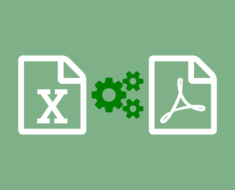
WP Cerber Security
More people have heard of APIs than those who know what they are. An Application Programming Interface, or API, is widely used in web and app development. In fact, it has been around for even longer than personal computers! APIs are an integral part of computing today, and nearly all enterprises use them in some capacity. This is why their security is of prime concern to organizations. To understand the types of risks involved in using APIs, it is essential to know how they work.
Simply put, an API offers the means for one program to access the data and functions of another. An analogy will help you understand this better. Say, you have some problems with your internet connection. You would call your cable provider’s helpline to request that someone fixes your issue. Call Spectrum helpline representative would then forward your issue to the concerned department. Then, they will pass on a solution to you. They may also tell you further ways to improve your internet, like through Spectrum internet packages. In this scenario, the helpline plays the role of an API. That is, it acts as a mediator between you and the solution experts.
How APIs Function
In the above example, you can point out some basics of an API. The helpline, or the API, acts as a messenger and interpreter. Also, there is a request/response dynamic in play. When you generate a request, an interface carries your message to an expert. The expert provides a response, which the interface then translates for you.
In all this, you as a client don’t need to know the nitty-gritty of the solution. That is, you can get your problem solved without ever knowing about the technical work that was put in. This concept of having some information hidden is called abstraction.
An Example of an API
All these concepts are essential to how APIs work. A good example is Google Maps. It is a popular API that countless websites use. When you open a brand website and go to its “Contact” page, you will probably find its location displayed on Google Maps. Now, this map does not belong to the brand. The website did not need to create or contain new code to display this data. Instead, it simply uses an external service. The website generates a request: to find its location on a map. And Google Maps takes this message to Google’s database. Then, it extracts the data that Google gets through its satellite mapping system and passes it on to the website.
You will notice here that APIs work sort of like borrowing. The very nature of APIs entails that information is being exchanged and shared. Naturally, this means there are always some risks at play. For instance, someone may breach an API to access information that was private and not meant to be shared. Therefore, it is vital to have a very strong security system guarding your APIs.
Ways to Strengthen API Security
Companies continue to use APIs because they make their work easier. Instead of wasting their time and resources in reinventing the wheel, they simply use someone else’s wheel! This way, they can focus on creating and improving upon new technology. In turn, they may give other users access to their technologies through APIs. The downside here is obvious: APIs expose your data to outsiders.
To ensure that no one abuses an API to gain illegal access to your sensitive data, here are some security tactics you can use.
Authenticate Users
You should develop a system where only certain, authenticated users can use your API. You can do this through a registration system. By doing this, you will ensure that only authorized users can access your APIs. When you know exactly who is using your APIs, you can prevent outsiders from barging in. You can provide users with unique API keys to register them. This way, you’ll be able to monitor their usage and know who is making what requests.
Enforce Authorization
Moving further, you should categorize your data and users. Not everyone needs to have access to all data. To access a certain kind of data through your APIs, a user must be authorized. In this way, you will guard more sensitive data. Also, when you give users varying levels of permissions, you will know who can access what. In case of a breach, you can filter out perpetrators. Moreover, you remove the chance of any user creating malicious requests on behalf of someone else.
Encrypt API Keys
It is always a good idea to encrypt sensitive information. Encryption means scrambling data to make it unreadable. When you assign registered API users unique keys, make sure to encrypt them. This will ensure that no outsider can steal or misuse a registered user’s private access details. Even if a key is accidentally exposed, it will be difficult to decrypt.
Use the Principle of Least Privilege
This is a major component of security. It means that you always share the bare minimum amount of data a user needs to complete a task. If a user request can be addressed with a limited amount of data, there is no need to give them access to more. All users, processors, programs, devices, or systems should only be given the least possible information.
Deploy Rate Limiting
You should only allow a fixed number of requests by a user within a certain time frame. If your API receives a lot of requests from the same user in quick succession, you should be alert. This is usually a sign of malicious activity. Sometimes, outsiders make several attempts to break through APIs. If you place a rate limit, you can prevent anyone from breaching your data through brute force or DoS attacks.
Layer Up Your Security
To benefit from the maximum possible protection, it is always better to bulk up on security. Hence, you should use multiple layers to guard your data. In case an outsider breaches any barrier, you should always have another one as a backup. If you can afford it, consider investing in an outer firewall to protect your servers. And if you do, make sure it can understand API payloads.









































